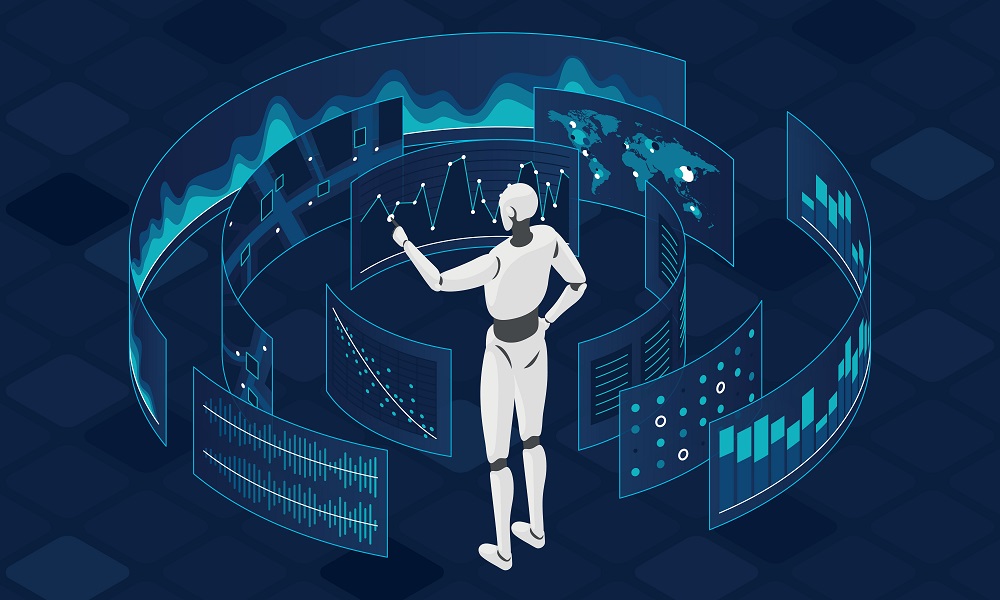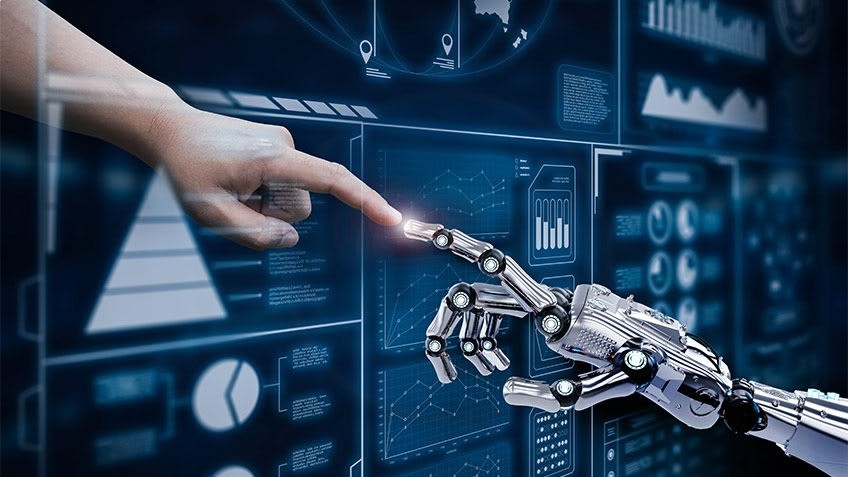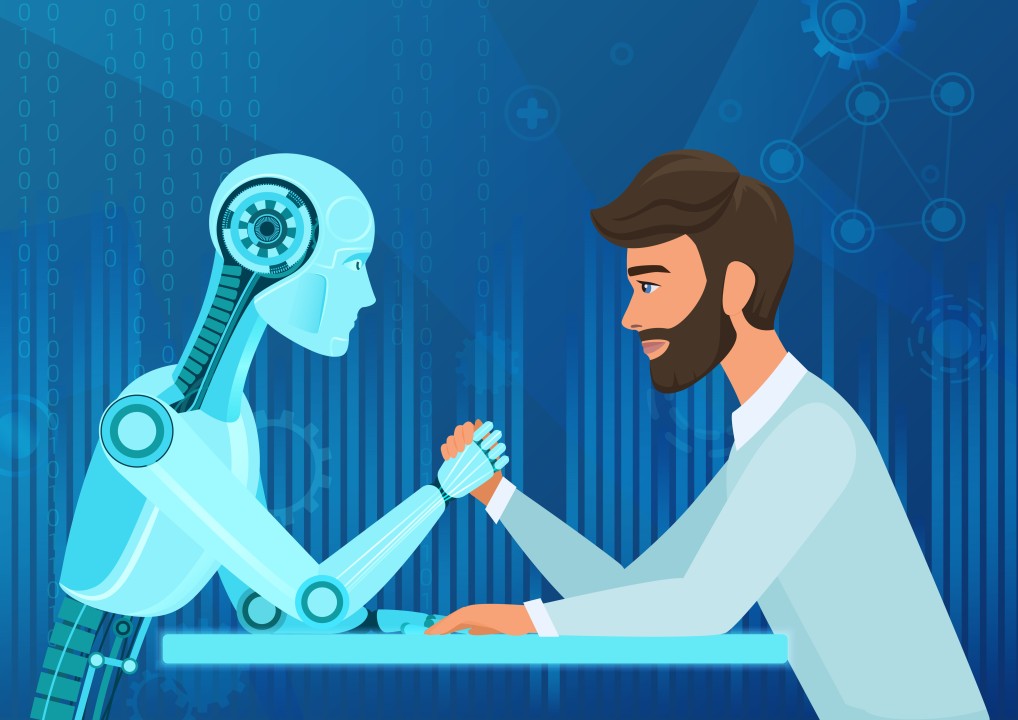The Recent Rise of Artificial intelligence (AI) has ushered in a new era of Innovation, Debate, and Speculation, particularly concerning its impact on Employment. So the Question that arises is How Will AI Affect The Jobs in Future and As we go through the years 2024 to 2030, AI is not just a Futuristic concept but a present reality with Tangible effects on the Job Market.
AI technologies like ChatGPT will redefine the nature of work, automate routine tasks, and spur the creation of new job categories.
Proponents argue that AI will free humans from monotonous tasks, enrich jobs, and give birth to industries we have yet to conceive. They envision a future where AI-driven efficiency enhances productivity and economic growth, potentially creating more jobs than it eliminates. In contrast, sceptics raise concerns about the negative impact of AI on employment, pointing to the risk of widespread job displacement as machines start performing tasks previously done exclusively by human workers.
The looming question of how many jobs AI will replace by 2025 and 2030 raises anxieties about job security and underscores the urgency for reskilling. In This Blog We will Basically Explore How AI Will Affect The Jobs in Future.

Will AI Reduce Jobs in the Future?
The “Artificial Intelligence will take away jobs“ debate is a central theme in discussions about the future of work. As AI technology advances, it promises to reshape industries and the labour market with unprecedented speed and scale. The conversation is charged with contrasting predictions and interpretations of what AI will mean for employment across various sectors.
On one hand, there’s a palpable concern that AI will automate tasks across a swath of industries, from manufacturing to service sectors, leading to significant job displacement. Critics argue that the pace at which AI can take over jobs, jobs that require levels of pattern recognition and cognitive abilities previously thought to be unique to humans is alarming. This concern is not without merit, history provides numerous examples of technology rendering certain job categories obsolete. The argument extends to the assertion that AI could exacerbate inequality, as those whose jobs are automated away may lack the resources to retrain or upskill for the new types of jobs being created.
On the other side of the debate is the optimistic view that AI will be a job creator. Proponents believe that “will AI create more jobs than it destroys” is the more pertinent question, as they anticipate a net gain in employment. They argue that while AI will undoubtedly replace some jobs, it will also create new ones, some of which we can’t yet imagine. Just as the industrial revolution created roles that didn’t exist before.
Both camps agree on one thing i.e., the job market will change. The extent of that change and its nature whether it will be primarily positive or negative is where opinions diverge.

The influence of Artificial Intelligence (AI) on jobs and the economy is Profound and Multifaceted. AI’s impact ranges from automating routine tasks to creating new markets and industries, thereby reshaping the economic landscape.
AI is set to automate a wide array of tasks, particularly those that are repetitive and require low levels of human judgement. Jobs in manufacturing, data entry, and customer service are increasingly performed by sophisticated algorithms and robotic systems. The risk of displacement is significant, especially for workers in roles that AI can execute more efficiently and at a lower cost. The debate centres on the extent of this displacement and whether it will lead to a net loss of jobs or simply a transition to different kinds of work.
Economists predict that AI could boost economic productivity by optimizing supply chains, improving product quality, and reducing operational costs. This increase in productivity could translate to higher GDP growth rates as businesses are able to produce more with less. For instance, AI driven analytics can enable better decision making in fields like agriculture, where precision farming can lead to higher crop yields, or in healthcare, where AI can help in early disease detection and personalized treatment plans.
As some jobs are automated, new roles will emerge. AI demands the creation of jobs that manage, develop, and maintain AI systems. These include data scientists, AI trainers, and ethics compliance managers. Moreover, as AI opens up new possibilities, it is likely to lead to the invention of products and services we haven’t yet imagined, which in turn could create entire industries. For example, the rise of the internet brought about jobs in Social Media and Digital Marketing Fields that didn’t exist a few decades ago.
The demand for certain skills will shift as AI becomes more prevalent. There will be a growing need for technical skills to develop and maintain AI technologies, as well as soft skills such as Problem Solving, Critical Thinking, and Creativity, which are less susceptible to automation. This shift necessitates a rethinking of education and workforce training programs to prepare individuals for the jobs of the future.
Existing economic disparities could worsen if we do not share the benefits of AI-driven productivity widely. There’s a risk that wealth could become more concentrated among those who own AI technologies and the companies that deploy them. This raises important questions about the distribution of wealth and the measures needed to ensure that the economic benefits of AI are accessible to all.
As we delve into the potential impact of AI on the job landscape by 2030, a critical question emerges, How many jobs will AI replace by 2030? Estimates vary widely, with some studies suggesting that millions of jobs worldwide could be subject to automation. For instance, a report by the McKinsey Global Institute suggests that AI and automation could replace up to 800 million global workers by 2030. This represents a significant portion of the global workforce and highlights the potential scale of AI’s impact on employment.
It’s important to note that these figures do not account for the new jobs that AI will create, nor do they consider the complex interplay of Economic, Social, and Political factors that will ultimately shape AI’s influence on the job market. The displacement of jobs due to AI is likely to vary by industry and geography, with some sectors and regions more susceptible to automation than others.
Jobs that involve routine tasks, such as data processing or physical labour in predictable environments, are at higher risk of automation. Conversely, AI technologies are less likely to fully automate roles that require complex decision-making, emotional intelligence, and creative problem-solving; these roles may instead evolve to collaborate with AI systems.

The jobs most likely to face automation are ones with tasks that follow set patterns and routines. Here’s a simple breakdown:
As AI technology gets smarter, even more complex jobs may start to see automation. But it’s not all about replacement; in many cases, AI will help humans do their jobs better rather than taking over those jobs completely.

Jobs less likely to face replacement by AI often involve complex decision-making, creativity, human interaction, and empathy. Here are some examples:
These jobs require a blend of interpersonal skills, emotional intelligence, judgment, and creative intelligence that AI cannot replicate, ensuring their relevance in the AI era.
The interplay between Artificial Intelligence and the Workforce is a dynamic and ever evolving narrative. As we sail toward 2030, the question of “how many jobs will AI replace?” remains at the forefront of Economic and Social discourse. AI is poised to automate certain roles, especially those involving repetitive and predictable tasks, but it also opens a gateway to new job creation, fostering opportunities for economic growth and innovation.
The “Artificial Intelligence will take away jobs debate” encapsulates a myriad of viewpoints, emphasizing the need for a balanced perspective. The impact of AI on jobs in India and across the globe will vary, with some sectors experiencing more automation than others. Yet, the resilience of the Human workforce lies in its ability to adapt and move into roles that AI cannot fulfil, jobs that require emotional intelligence, creativity, and complex decision making.
By embracing this approach, we can mitigate the risks and leverage the opportunities presented by AI, ensuring that the march of technology goes hand in hand with the prosperity and growth of the human workforce. As we chart this course, the synergy between human ingenuity and artificial intelligence will be the cornerstone of a thriving, inclusive job market and a robust global economy.
Also, Read Top 10 Highest Paying AI Jobs for 2024.